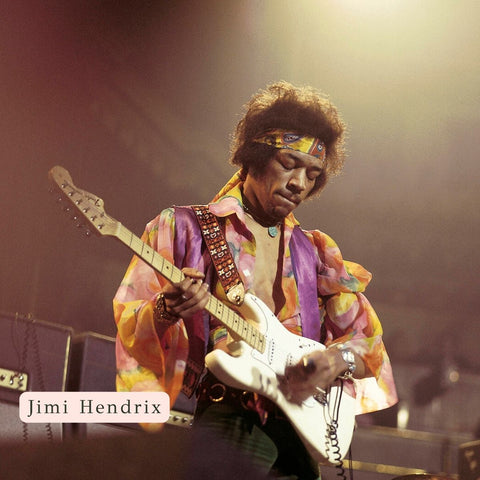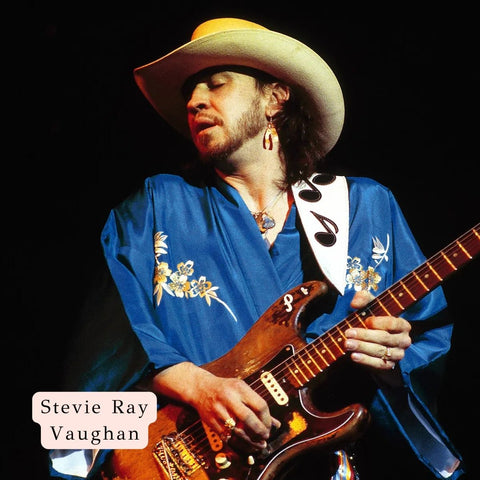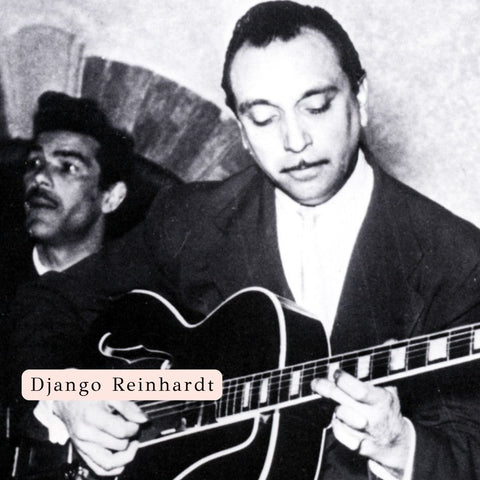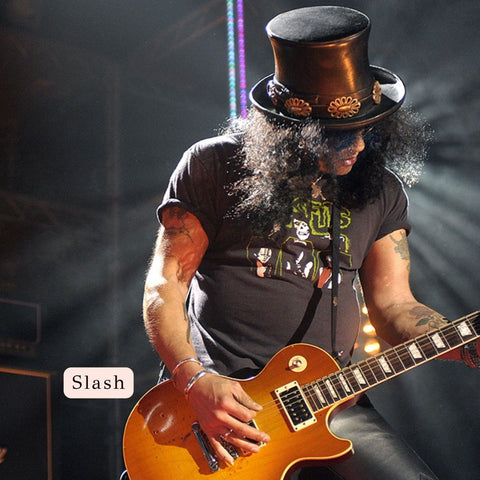The Maestros of Melody: Exploring the Greatest Guitar Players of All Time

The history of music is adorned with virtuosos who have elevated the guitar from a mere instrument to a vessel of raw emotion and boundless creativity.
These legendary players have not only shaped genres but have also inspired countless musicians to pick up the guitar and embark on their own musical journeys.
Let's delve into the lives and fascinating facts of some of the greatest guitar players of all time.
1. Jimi Hendrix:

Jimi Hendrix, the pioneer of psychedelic rock, revolutionized the way the guitar was played and perceived.
His innovative use of feedback, distortion, and whammy bar techniques reshaped the sonic landscape of the 1960s. Interestingly, Hendrix was left-handed but played a right-handed guitar flipped upside down, contributing to his unique sound and style.
Tracks like "Purple Haze" and "Voodoo Child" stand as timeless testaments to his genius.
2. Eric Clapton:

Often dubbed "Slowhand," Eric Clapton's journey from blues prodigy to rock icon is nothing short of remarkable.
One of the interesting facets of Clapton's career is his contribution to multiple legendary bands, including The Yardbirds, Cream, and Derek and the Dominos.
Despite battling personal demons, Clapton's passion for the guitar never wavered, cementing his status as a true guitar legend.
3. Jimmy Page:

As the visionary guitarist of Led Zeppelin, Jimmy Page's mystical riffs and virtuosic solos captivated audiences worldwide.
Beyond his musical prowess, Page was also a skilled producer, shaping the sound of numerous iconic albums, including Led Zeppelin's self-titled debut.
His fascination with the occult and symbolism further added layers of intrigue to his persona, earning him a place among rock royalty.
4. B.B. King:

The undisputed "King of the Blues," B.B. King's soulful playing and emotive vocals transcended musical boundaries.
One fascinating fact about King is his beloved guitar, Lucille, whose name originated from a near-fatal incident.
King risked his life to save his guitar from a nightclub fire, later discovering that the fight that broke out was over a woman named Lucille.
The name stuck, becoming synonymous with his legendary instrument.
5. Stevie Ray Vaughan:

Stevie Ray Vaughan's electrifying performances and searing blues licks brought the genre back into the spotlight in the 1980s.
Despite his meteoric rise to fame, Vaughan remained humble and grounded, often crediting his musical influences and Texas roots for shaping his sound.
Tragically, Vaughan's life was cut short in a helicopter crash at the peak of his career, leaving behind a legacy that continues to inspire generations of guitarists.
6. Eddie Van Halen:

With his innovative tapping technique and blistering solos, Eddie Van Halen forever changed the landscape of rock guitar.
Van Halen's quest for sonic experimentation led him to build his own guitars and amplifiers, pushing the boundaries of what was possible with the instrument.
Beyond his technical wizardry, Van Halen's infectious smile and boundless energy endeared him to legions of fans around the world.
7. Django Reinhardt:

Django Reinhardt's unparalleled talent and improvisational prowess made him a legend in the world of jazz guitar.
Despite being severely injured in a fire that paralyzed two fingers on his left hand, Reinhardt developed a unique playing style that emphasized his remaining digits' dexterity and speed.
His collaboration with violinist Stéphane Grappelli in the Quintette du Hot Club de France produced some of the most celebrated recordings in jazz history.
8. Carlos Santana:

Carlos Santana's fusion of Latin rhythms, blues, and rock propelled him to international superstardom in the late 1960s.
Santana's spiritual journey and embrace of his Mexican heritage deeply influenced his music, imbuing it with a sense of spirituality and cultural richness.
An interesting fact about Santana is his belief in the power of music as a healing force, leading him to establish the Milagro Foundation, which supports underprivileged children worldwide through music education.
9. Slash:

With his trademark top hat and effortless swagger, Slash became the epitome of rock 'n' roll excess in the 1980s and 1990s.
A lesser-known fact about Slash is his affinity for animals, particularly snakes.
He often incorporated live snakes into his stage performances, further enhancing his mystique and reputation as a rock icon.
10. Keith Richards:

As the rhythmic backbone of The Rolling Stones, Keith Richards' gritty guitar playing and rebellious persona have made him an enduring symbol of rock 'n' roll rebellion.
Despite his tumultuous lifestyle, Richards remains a dedicated musician, constantly seeking new creative outlets and collaborations.
An interesting tidbit about Richards is his love for open tunings, which he often employs to achieve the distinctive sound heard in many Stones classics.
In conclusion,
the legacies of these guitar gods continue to resonate with audiences worldwide, their influence extending far beyond the realms of music.
Whether it's the soulful blues of B.B. King, the electrifying solos of Eddie Van Halen, or the mystical riffs of Jimmy Page, their contributions to the world of guitar playing are immeasurable, ensuring their place among the pantheon of musical greats.
